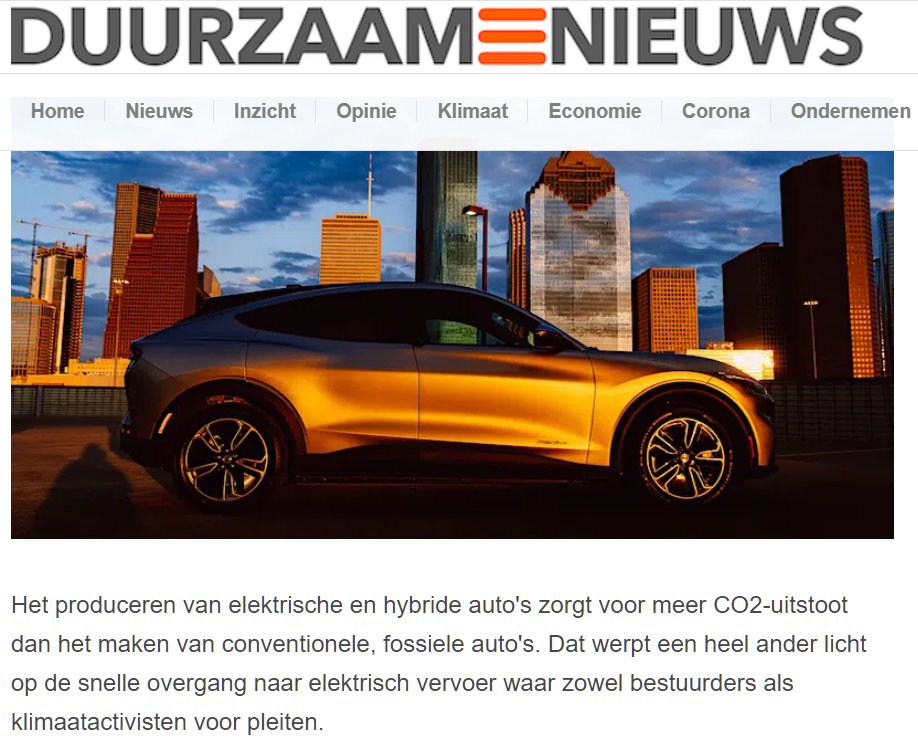
Research from @TheICCT proving once again electric tractor-trailers are viable. Over 50% of road transport CO2 comes from these big rigs aka 18 wheelers and the share is growing. (More than either all airplanes or all shipping.) Electrifying these beasts is crucially important!
https://twitter.com/F_Rodriguez_PhD/status/1432300820763140098
Have been saying this for at least five years (several master students, keynotes, and a set of blogs in 2017: elaad.nl/news/auke-hoek…) but this analysis is GOOD.
(Evertyhing from @TheICCT is thorough.)
(Evertyhing from @TheICCT is thorough.)
Little point I just discussed with the author: they mention losses of 16% due to aerodynamics and 15% due to rolling resistance.
But that's for a diesel truck where the combustion engine and braking syphon away ~70%. For an electric truck engine+break losses go from 70%>~15%.
But that's for a diesel truck where the combustion engine and braking syphon away ~70%. For an electric truck engine+break losses go from 70%>~15%.
With electric trucks I estimate that rolling resistance and aerodynamics will both cause 40-45% or losses.
So tires and aerodynamics should receive much more attention now that we've eliminated inefficient combustion engines.
So tires and aerodynamics should receive much more attention now that we've eliminated inefficient combustion engines.
We all know what a truck should look like in terms of aerodynamics. That can easily slash remaining emissions by 25%.
But tires are often forgotten and commercially available low rolling resistance upgrades to these lowly pieces of rubber could slash emissions another 25% or so.
But tires are often forgotten and commercially available low rolling resistance upgrades to these lowly pieces of rubber could slash emissions another 25% or so.

So I love all the excitement about electric cars, boats and airplanes. But let's not forget to electrify the big rigs and to fit them with low rolling resistance tires!
/end
/end
Might also be interesting to @mzjacobson @ChristianOnRE @TomRaftery @nworbmot @Sustainable2050 @MLiebreich @M_Steinbuch
Clarification: it's 50% CO2 of road transport as in FREIGHT transport. Personal mobility causes more emissions than freight transport.
(pic is US)
I always use the term transport for goods and mobility for persons hence my confusing first tweet. Sorry.
theicct.org/blogs/staff/a-…
(pic is US)
I always use the term transport for goods and mobility for persons hence my confusing first tweet. Sorry.
theicct.org/blogs/staff/a-…

P.s. Electrifying long haul trucks is not just a good way to reduce CO2 emissions but it will also make us healthier by removing a source of air-pollution. This is a study from June 2021 also looking at future diesel trucks.
pubs.acs.org/doi/10.1021/ac…
pubs.acs.org/doi/10.1021/ac…

• • •
Missing some Tweet in this thread? You can try to
force a refresh





